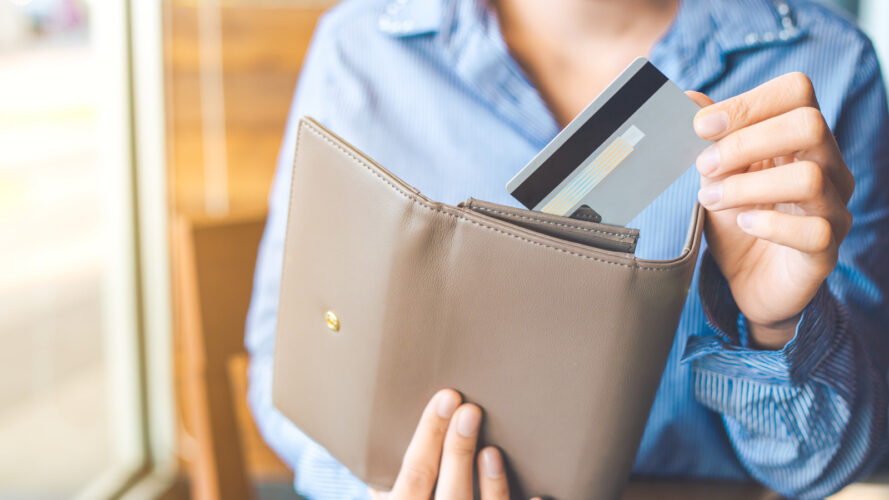A credit card can be a very useful tool for daily purchases. A well-managed credit card enables a person to build a sound credit history which will help you in important moments such as when renting an apartment, or even subscribing to a new cellphone plan. However, the only manner in which you can build a healthy credit profile is by using your credit card responsibly. Below, you’ll find 5 moments when it might be best to put your credit card back in your wallet.
1. When you can’t afford to pay off the balance
If you are about to make a big purchase, consider whether or not you will be able to pay off the balance. One of the signs that you should not use your credit card is if you can’t afford to pay for the purchase in cash. This is especially dangerous for your credit profile if your purchase brings your balance above 75% of your available credit. If you cannot pay this balance off and keep it on an ongoing basis from month to month, lenders will consider you high-risk in terms of creditworthiness. The best way to avoid falling into debt and ruining your credit score is to ensure that you only purchase things you are able to pay off.
2. When you haven’t paid off the balance
Similarly, if you’re about to make a purchase, but you still haven’t paid off your credit card balance, you should avoid using your credit card. If you’ve already created a budget and are in the process of paying off your debt, adding more purchases onto your credit card might derail your progress and set in motion a lengthy cycle of debt that will be difficult to get out of. Moreover, with time you may find yourself only able to pay off the interest of that debt without ever truly being able to get rid of it.
3. When you don’t know your available credit
One of the most important things about owning a credit card is knowing how much available credit you have before making purchases with it. If you keep using it without knowing what your account balance is, you are putting yourself at risk of going over your spending limit and you could incur additional fees. Doing so will also lower your credit score. The safest way to use your credit card is to always be aware of its balance, and to try to use no more than 35% of your available credit.
4. When you’re applying for a mortgage
Another important time to put your credit card away is when you’re applying for a mortgage. This is due to the fact that mortgage lenders often consider your debt-to-income ratio and don’t look too kindly on large credit card balances, so it will be more difficult for you to qualify for a mortgage. Therefore, if you plan on applying for a mortgage, make sure you’ve paid off any big balances you have, and hold off on spending until you have completed the mortgage application process.
5. When you’re in a heightened emotional state
If you’re in a heightened emotional state, it is strongly recommended that you put your credit card away. Even though treating yourself when you’re feeling upset might make you feel good, you might also be starting a vicious cycle once you’re faced with the upsetting consequences of overspending. When you feel yourself getting upset or anxious, take a step back and try to find new and healthy ways to deal with your personal situations, like meditation, exercise, or counselling. If you already feel burdened by the amount of debts you possess, there’s never any shame in seeking help and booking a free consultation with a licensed insolvency trustee.


